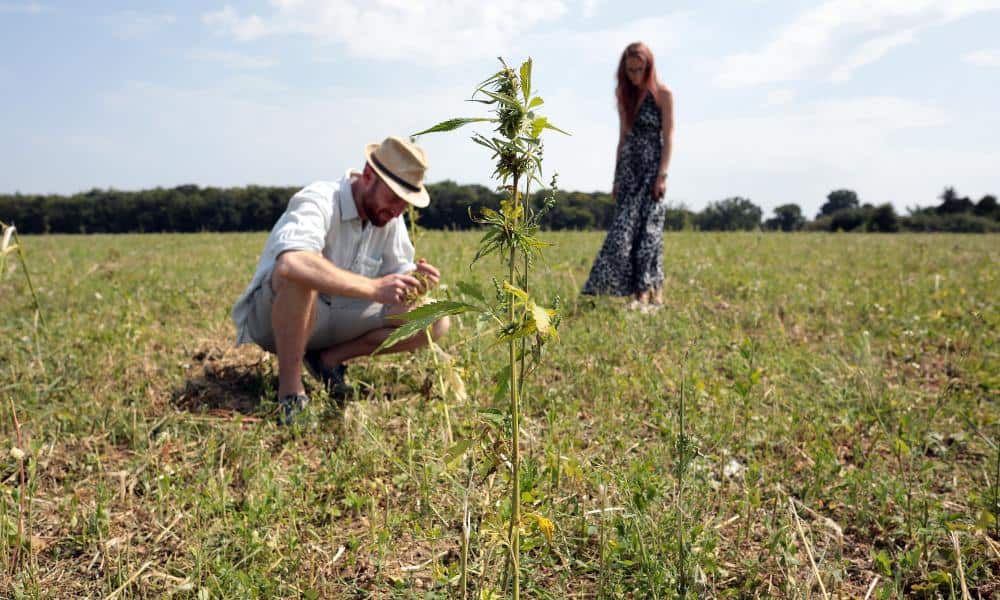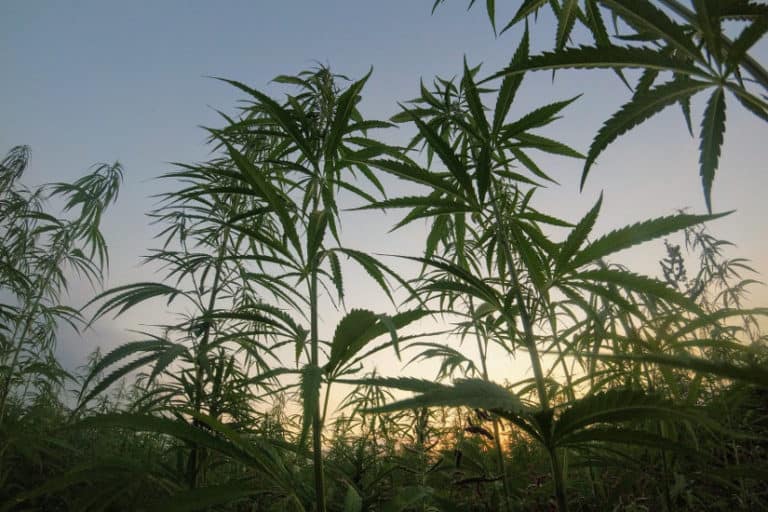In the UK, it is legal to grow hemp but only under license from the Home Office. However, only seeds and stalks can be harvested; CBD flowers are still illegal. Once licensed plants reach maturity, farmers must destroy all the buds.
While hemp stalks and seeds have several practical applications, the current restrictions stop farmers from supplying hemp flower to the CBD industry. CBD products, such as oils, capsules and balm, can be sold legally in the UK, but can only be made from imported hemp flowers and leaves.
CBD now generates an estimated £690 million in sales per year, meaning that anyone choosing to grow UK hemp is missing out on a significant portion of potential income.
Contents
How to Obtain a Hemp Growing License
Hemp growing licenses are only granted to commercial enterprises; to apply for one you need to provide precise details about your business and where you intend to grow the crop.
To start the process, you must create a login for the ‘Controlled Drugs and Precursors’ system and then use the links supplied on the Home Office website to apply for an enhanced DBS check. Following that, you can submit your payment information then complete the online application.
There are nine stages to the form; they cover all aspects of the grower, the intended crop and precise field locations.
A license covers an entire farm, so you don’t need to reapply if you decide to plant the crop in a different field. However, each grower involved with the crop needs their own individual license.
How Much Does a Hemp License Cost?
An Industrial Hemp (low THC Cannabis) Cultivation License costs £580 and it can be renewed for £326 if you grew a crop in the last season. However, about 10% of permit holders will be selected for a compliance visit. If this happens, your fee will increase to £1371.
The Home Office will take the payment when they have approved your application and will only consider cultivation to be legal once it’s in your possession. If you start your crop before this, you are liable for prosecution.
What Can Hemp Be Used For?
The low THC hemp license only allows for the production and harvest of stalks for hemp fibre or for seeds to be pressed for oil. The leaves and flowers should be destroyed immediately. While this does place significant restrictions on how the plant can be used, the fibres and seeds are versatile and have numerous potential uses.
Hemp stalks can be made into natural biodegradable fibres and offer an effective alternative to popular synthetic products. It can also be used to make paper, building materials, livestock bedding and even bioplastics. Hemp seed oil can be used in cooking, as a moisturising agent in skincare products, or the seeds can be used as a nutritious animal feed.
Still, despite there being several active hemp farms, there remains little commercial interest or funding in this country. This means that the use of UK produced hemp remains limited with little innovation or widescale manufacturing.
The State of the UK Hemp Industry

Sales of CBD are flourishing and this shows signs of continuing into the 2020s. However, unless significant changes are made to licensing restrictions, the UK hemp industry will never benefit from this success.
Currently, the hemp used in all CBD-rich products must be imported from Europe and the US. While this supply is presently working, it sends millions in potential revenue out of the UK instead of channelling it to local farmers and businesses.
Hemp Farmers Risk Losing Their Crops
Not only is the UK hemp industry unable to supply flower to CBD manufacturers, but it’s also at risk from unclear licensing requirements and contradictory instructions from the Home Office. In July 2019, not-for-profit business Hempen had its license revoked and was ordered to destroy about £200,000 worth of crops.
Company Director James Norman felt that they had complied with all the requests made of them and criticised the Home Office for ‘lack of clarity’ in their licensing procedures. Unfortunately, events like these deter other companies from considering hemp cultivation. Even companies who intend to follow every letter of the law may choose not to take the risk.
The UK Campaign for Change
In an attempt to promote meaningful change and support the growth of the UK hemp sector, CBD businesses have joined forces to create the UK Hemp Association (UKHA) and the British Hemp Alliance (BHA).
The UKHA believes that the UK has been slow to grasp the potential of hemp; to address this, they campaign for more appropriate legislation. The BHA is also looking for progressive changes in licensing. Their campaign is focused on achieving three things:
- Hemp licenses should be controlled by the Department for Environment, Food & Rural Affairs (DEFRA) and not the drugs and firearms department, as it is now.
- Farmers must be able to harvest and use the whole hemp plant, including the leaves and flowers.
- The list of legal hemp seeds should be expanded to include those that contain up to 1% THC.
Conclusion
The current system of hemp licensing in the UK fails to reflect the incredible benefits it could produce for farmers and the wider economy.
If these tight controls were loosened and hemp flower was no longer destroyed, our agricultural sector would be able to take full advantage of the recent popularity of CBD. It would also encourage more commercial enterprises to give it a try. This might result in new innovations in farming and manufacturing with the whole plant, including stalks, seeds, leaves and flowers.

